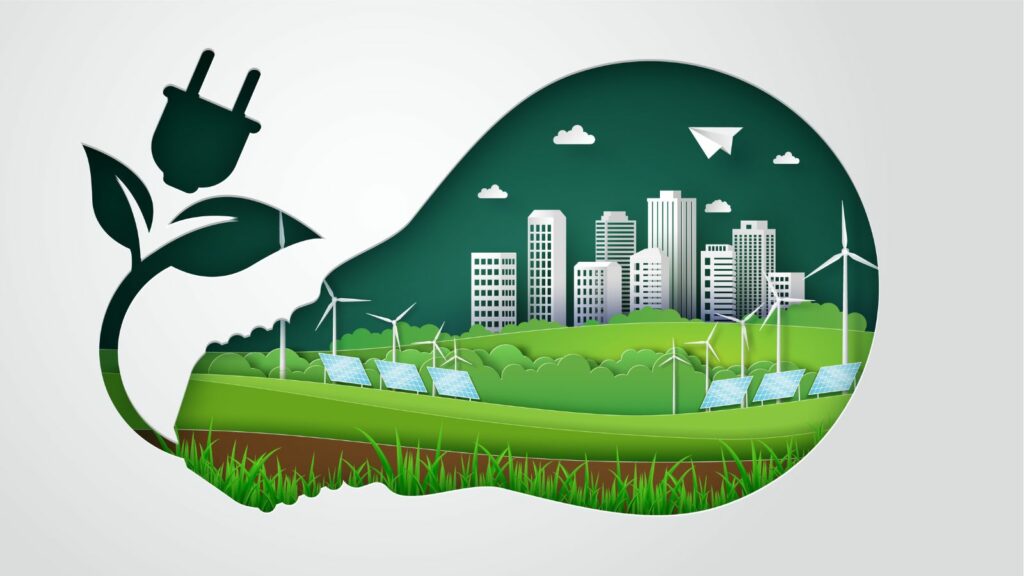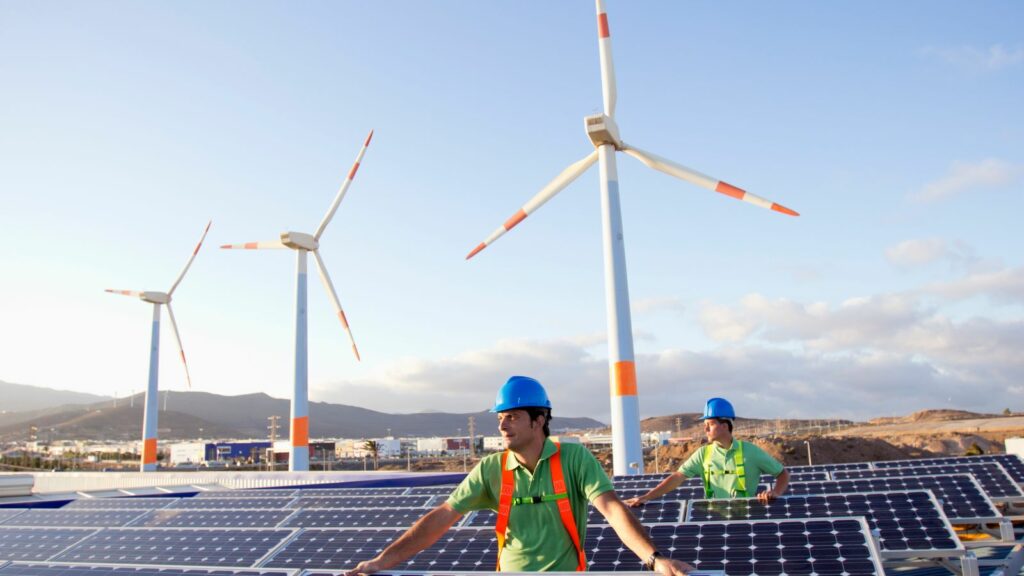In an era where climate change headlines dominate the news, green energy services have emerged as a beacon of hope. As individuals and businesses alike strive to reduce their carbon footprints, the demand for sustainable energy solutions continues to soar.
Green Energy Services
Green energy services integrate solutions that harness renewable resources. They aim to reduce reliance on fossil fuels and minimize environmental impact. Key components include:

- Renewable Energy Sources: Solar panels, wind turbines, and hydropower systems provide clean and sustainable energy options for individuals and businesses.
- Energy Audits: Professionals assess energy use patterns to identify inefficiencies. By recommending optimizations, audits enhance energy conservation and lower costs.
- Efficiency Upgrades: Upgrades involve installing energy-efficient appliances, optimizing systems, and retrofitting buildings to improve energy performance.
- Smart Grid Technologies: Advanced systems facilitate efficient energy distribution, balance supply and demand, and incorporate energy storage solutions.
- Carbon Footprint Reduction: Utilizing green energy reduces greenhouse gas emissions. It contributes to environmental protection and aligns with global sustainability goals.
Expanding these services supports economic growth while ensuring a resilient and sustainable future.
Types Of Green Energy
The transition to renewable energy involves several distinct types, each offering unique benefits. Understanding these types helps in selecting the most suitable energy solutions.
Solar & Wind Energy

Solar energy captures the sun’s rays and converts them into electricity through photovoltaic (PV) panels. Its popularity has grown due to decreasing installation costs and its vast potential.
Roof-mounted panels, solar farms, and solar hot water systems exemplify solar technologies that reduce electricity costs and carbon emissions.
Wind energy uses turbines to harness wind power for electricity generation. It’s particularly effective in areas with strong, consistent winds. Offshore and onshore wind farms illustrate large-scale implementations. Wind energy helps replace fossil fuels and provides a sustainable option for large electricity grids.
Hydropower
Hydropower generates electricity from flowing water, using turbines in dams or rivers. It’s a reliable source as water flow is predictable. Large-scale hydropower plants and small, localized micro-hydro systems exemplify these technologies. Hydropower supports consistent energy supply and stable grid operations.
Geothermal Energy
Geothermal energy exploits heat from beneath the Earth’s crust to produce electricity and provide direct heating solutions. Geothermal power plants and ground-source heat pumps demonstrate its use. It’s a consistent energy source, unaffected by weather conditions, helping reduce heating and cooling costs.
Biomass Energy
Biomass energy converts organic materials like plant and animal waste into electricity, heat, or fuel. Technologies involve combustion, anaerobic digestion, and fermentation processes. Biomass power plants and biofuel production illustrate its applications. This energy type offers dual benefits: waste management and renewable energy production.
Benefits Of Green Energy Services
Green energy services offer numerous advantages that extend beyond mere environmental protection, influencing economic and social dimensions as well.
Environmental Impact
Green energy services significantly reduce pollution by decreasing reliance on fossil fuels. Renewable resources like solar and wind do not emit greenhouse gases during energy production. This leads to cleaner air and reduces the effects of climate change. Moreover, they conserve precious underground water by eliminating water-intensive conventional energy processes.
Economic Advantages / Social Implications

Green energy services help cut energy bills for individuals and businesses by utilizing cost-effective renewable sources. Enhanced efficiency upgrades increase savings through reduced wastage. As technology advances, the cost of implementing these services continues to drop. Job creation in emerging green sectors also fosters economic growth while reducing dependence on imported fuels.
The adoption of green energy services promotes energy independence, improving national security by relying on domestically available resources. Communities benefit from improved public health due to reduced air pollution. Investments in these services enhance innovation, offering educational opportunities and raising awareness about sustainable practices. By championing these initiatives, society moves toward a more sustainable, equitable energy future.
Renewable Energy
Green energy services are pivotal in shaping a sustainable future by reducing carbon footprints and fostering economic growth. Through innovative solutions like solar panels, wind turbines, and smart grid technologies, they offer a pathway to cleaner air and energy independence. As investment and policy support continue to grow, these services will play a crucial role in the global transition to renewable energy.

